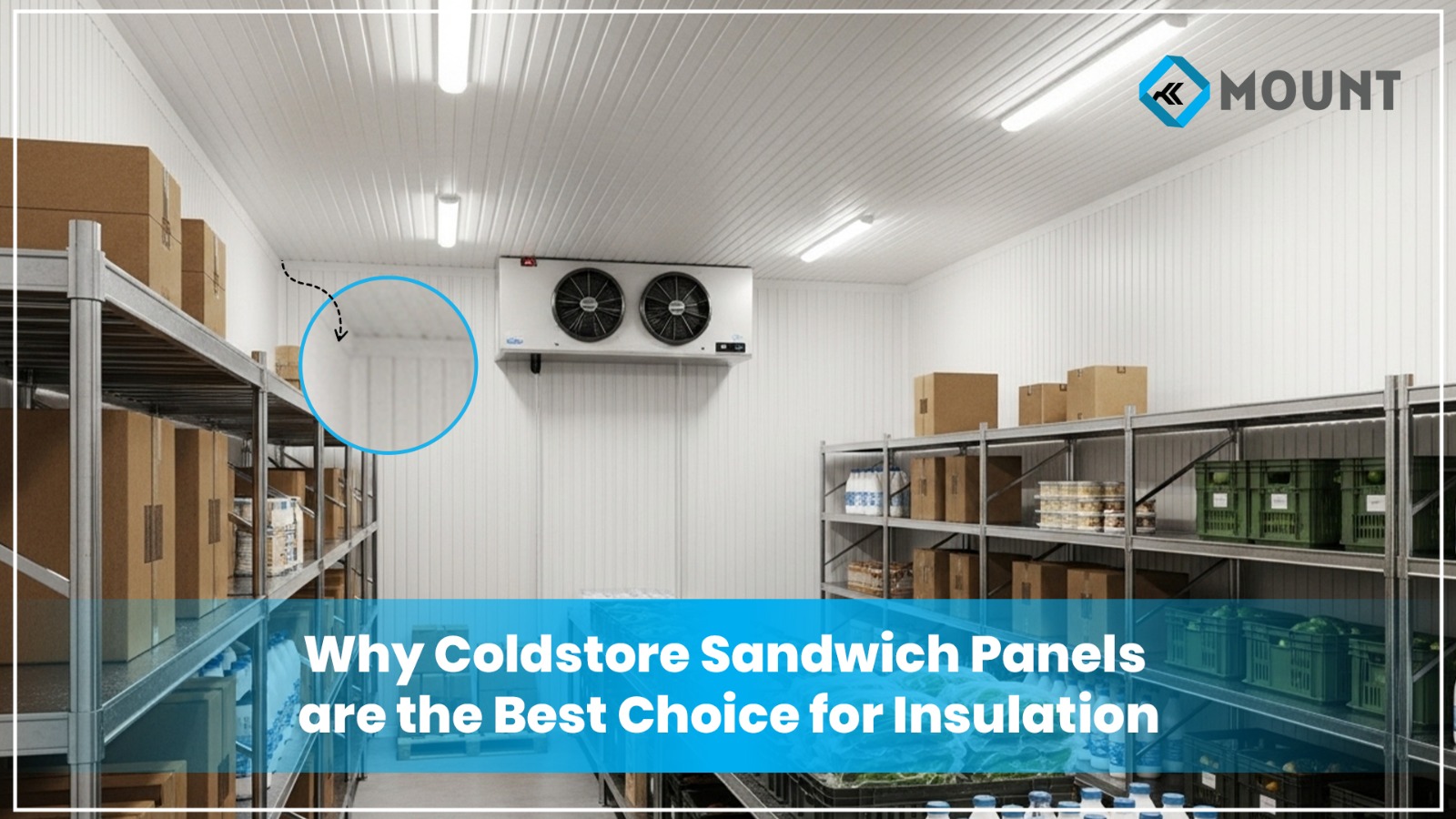
Why Coldstore Sandwich Panels are the Best Choice for Insulation
The solution of different insulation options can truly affect the efficiency of your operations when you control temperatures in a commercial refrigeration facility. PUF panels have established the standard for cold storage, offering thermal performance that outperforms traditional insulation materials. These new building materials offer insulation and structural integrity, making them ideal for warehouse environments or wherever temperatures need to be controlled.
The unique construction of the panels makes these products very effective when controlling thermal transfer to essentially make an impenetrable barrier, while keeping a constant temperature within the cold storage facility with minimal energy consumption. These products offer complete seamless insulation, allowing no thermal bridging that are common to conventional insulation methods and lead to unwanted energy waste and temperature isolation.
Understanding PUF Panel Technology
Polyurethane foam technology is a major advancement in the science of insulation. As a PUF panel manufacturer would explain, PUF panels are composite units with a rigid polyurethane foam core, placed between two steel sheets/metal profiles, providing an exceptional insulation or thermal resistance value. The foam core is a closed cell, preventing liquid water from penetrating the core and air pockets are trapped, providing multiple barriers resulting in no heat transfer.
The production method demonstrates the quality and performance of each panel. The foam injection occurred under rigid conditions, ensuring that density is consistent throughout the core. A precision manufacturing process allows each panel to meet rigorous thermal performance guidelines, producing consistent and reliable performance.
Cost-Effectiveness and Value
Knowing the costs associated with PUF sandwich panels helps facility managers make decisions that maximise their insulation expenditure. While the purchasing cost may initially be higher compared to traditional alternatives, potential long-term savings, will be significant. This technology offers reduced consumption rates of up to 40% versus traditional insulation methods resulting in major savings on direct operating costs. These panels will save money in operational expenses.
Sandwich panels are durable and have low maintenance costs over their lifespan. Traditional insulation does degrade and compress or develop gaps over time, however and the high-quality panels maintain their thermal characteristics for over 30 years. This extended service life makes sandwich panels a good investment for businesses that want to plan long-lasting goals.
Wall Applications and Structural Benefits
A specialised company that manufactures PUF wall panels specialises in panels specifically designed for vertical applications. PUF wall panels give excellent structural capabilities combined with better thermal efficiencies. The metal facings are also very good at evenly distributing loads, allowing for easier construction of large-span buildings made from the panels. These panels do not need additional structural support members.
Additionally, wall panels can achieve very good fire resistance when constructed with the required additives. This safety concern is often prominent in a commercial environment, and therefore, fire resistance is vital. The panel can be independently rated on any configuration to comply with building codes.
Roofing Solutions for Complete Protection
Experienced roofing PUF panel manufacturer professionals know that complete containment also includes insulating overhead thermal barriers. Roof panels can be regularly exposed to thermal cycling and moisture and are also subject to structural loads that can come from snow or equipment. The panels are designed to include additional weather barriers and structural strength to cater for demanding conditions.
Roof panels are lighter than walls, which lessens the structural loading on a building frame, allowing for a lot more economic building design. This weight advantage is often more important in retrofit applications where there is limited loading capacity in the existing structure.
Comprehensive Cold Storage Solutions
Wall PUF panels in general are another part of the thermal envelope, along with roof and floor insulation. A complete thermal envelope works together to minimise thermal weakness in the envelope. The professional’s experience allows them to know that each type of panel works with other panels, and they can achieve the same thermal performance characteristics throughout the building.
The modular design of these systems allows a building to be constructed modularly and expended in the future. Portions of a building made with panels can have additional sections added without jeopardizing the thermal envelope to the previous sections of the building, making panels suitable for businesses with active growth.
Advanced Sandwich Panel Technology
Modern sandwich PUF panels use state-of-the-art manufacturing methods that have further improved the performance, thermal performance, and structural capacity of the panels. Multi-layering construction options allow for more insulation value while still maintaining reasonable weights and dimensions.
These panels usually have specialised edge treatments that create better seals between the panels. This ensures a lack of thermal bridging and prevents moisture from entering, as these are two vital items for a long-lasting insulation performance.
Final Thoughts
PUF sandwich panels have excellent performance characteristics for use in cold storage insulation applications. A combination of thermal performance, structural performance, and long-term sustainability provides substantial value for commercial refrigeration facilities. Once they are professionally installed by qualified technicians, these panels provide constant temperature control while also reducing the operating costs during their lifetime.




